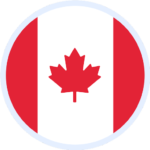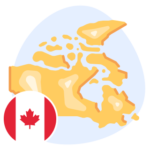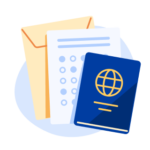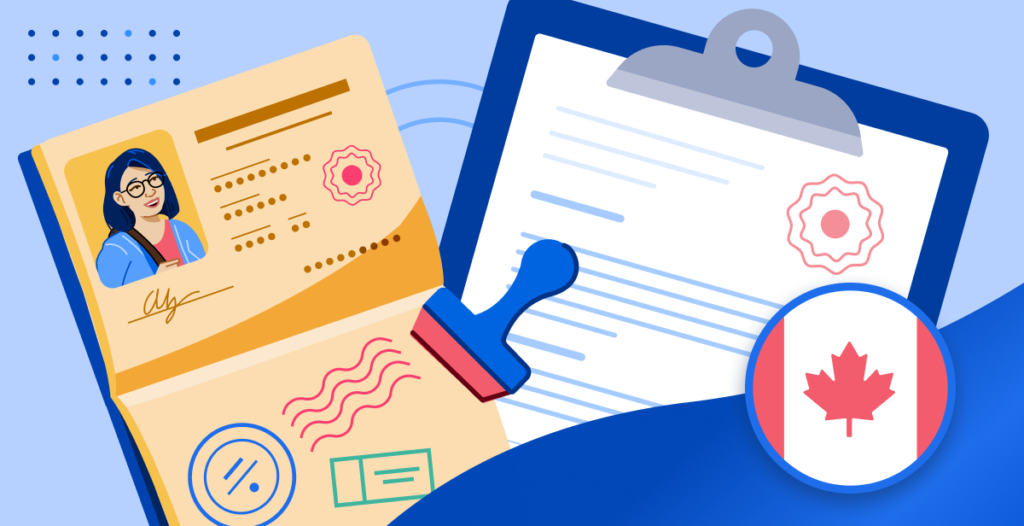Update: Student Direct Stream Closed on November 8, 2024
In a Government of Canada bulletin dated November 9, 2024, the Canadian federal government shared that the Student Direct Stream (SDS), which enabled expedited study permit processing for future international students from select countries, was closed effective 2:00 PM Eastern Time on November 8, 2024. Applications received prior to that time will still be processed. Moving forward, all applications will go through the general study permit application stream.
As the SDS program is now closed and not accepting further applications, the content below is for reference only.

We have some exciting news for international students interested in studying in Canada. Immigration Refugees and Citizenship Canada (IRCC) has announced that as of August 10, 2023, applicants to the popular Student Direct Stream (SDS) program may submit English proficiency test results from four new providers.
Previously, International English Language Testing System‘s (IELTS) Academic and General tests were the only English language tests approved by IRCC. Applicants who submit their paperwork after August 10 may also submit results from:
- Canadian Academic English Language (CAEL)
- Canadian English Language Proficiency Index Program (CELPIP General)
- Pearson Test of English – Academic (PTE Academic)
- Test of English as a Foreign Language (TOEFL iBT).
Important: No matter which English test you choose, you have to take the test in person to use its results for SDS. No online, remotely proctored test results are eligible.
Why Is This Good News for Students?
Until now, IELTS was the only English language test option for international students applying to the Student Direct Stream. This created high demand for IELTS test results, leading to test booking delays and preventing students from getting their results in a timely fashion.
By expanding SDS eligibility to include four additional English language test providers, this creates far more flexibility and offers students more options when choosing their preferred test.

What Was the Student Direct Stream?
If you plan to study in Canada, and are currently a legal resident in a select group of countries, until November 2024, you could use the Canadian Government’s Student Direct Stream to speed up your study permit processing time. In 2024, the standard turnaround time for a study permit via SDS was 20 days. In the regular study permit processing stream, the average turnaround was 42 days.
Note: Remember, a Canadian study permit is not the same thing as a student visa. You’ll receive an electronic travel authorization (eTA) to travel to Canada after your study permit is approved.

Who Was Eligible for the Student Direct Stream?
To apply for the SDS, you had to be a legal resident in one of the following countries:
- Antigua and Barbuda
- Brazil
- China
- Colombia
- Costa Rica
- India
- Morocco
- Pakistan
- Peru
- Philippines
- Senegal
- Saint Vincent and the Grenadines
- Trinidad and Tobago
- Vietnam
You could not be living in Canada when you applied to the Student Direct Stream.
Equally, if you’re a citizen of a country listed above but you’re living anywhere else (for example, a Peruvian citizen living in the United Kingdom), you must apply through the regular study permit application stream.
The SDS applicant’s direct family members (spouse, common-law partner, and dependent children) may also be able to have their visitor visa, work permit, or study permit processed faster, provided their applications are completed and submitted at the same time as the SDS applicant’s.
Pro Tip: When you apply online, indicate you have family members coming to Canada with you. This will let you complete their applications at the same time.

What Do I Need to Apply to the SDS? (For Reference Only – Program Closed)
Requirements vary depending on what you’re studying, and where you’ll live. For example, students going to Quebec will need an attestation of issuance of their Quebec Acceptance Certificate (CAQ) from the Ministere de l’Immigration, de la Francisation et de l’Intégration (MIFI).
In certain circumstances, you’ll need to take a medical exam by an IRCC-approved doctor and submit your results with your SDS application. Some applicants may also need to submit a police certificate.
General SDS Eligibility Requirements:
-
- An acceptance letter from a post-secondary designated learning institution
- Proof that you’ve paid tuition for your first year of study
- A Guaranteed Investment Certificate (GIC) of C$10,000
- Your most recent academic transcript(s)
- Your language test results, meeting or exceeding the minimum scores below.
-
-
- Accepted Tests:
-
-
-
-
- International English Language Testing System (IELTS) Academic or General: 6.0 or higher in each language skill (reading, writing, speaking and listening)
- Test d’évaluation de français (TEF): This test, for students studying in French, requires a score equal to a Canadian Language Benchmark (CLB) score of 7 or higher in each language skill
-
-
-
-
- Additional Tests Accepted After August 10, 2023:
-
-
-
-
- CAEL: minimum score of 60
- CELPIP General: a score equal to a Canadian Language Benchmark (CLB) score of 7 or higher in each skill
- Pearson PTE Academic: minimum score of 60
- TOEFL iBT: minimum score of 83
-
-
As Canada’s international student population continues to grow, we’re hopeful that the increased diversity of accepted language proficiency tests will make studying in Canada more accessible. ApplyBoard will continue reporting on key updates as this initiative is launched.
Want to learn more about studying in Canada? ApplyBoard can guide you from application to arrival.




